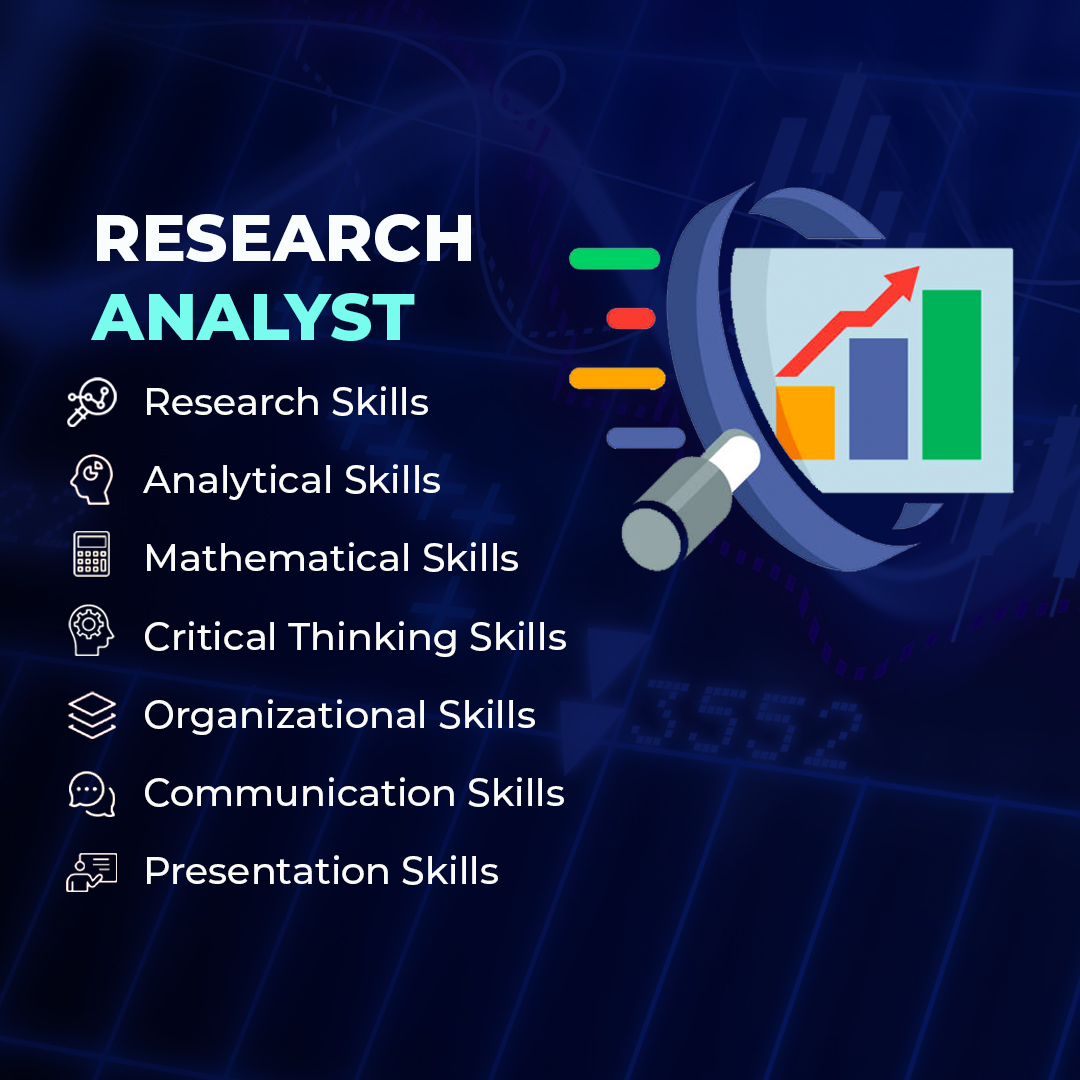Becoming a research analyst can be an exciting and rewarding career choice for individuals who possess a passion for data analysis, critical thinking, and the pursuit of knowledge. Research analysts play a crucial role in various industries, including finance, market research, technology, and academia. They gather, interpret, and present data to make informed decisions, drive strategies, and support evidence-based solutions.
In this comprehensive post, we are going to share a step-by-step guide that will help you discover the path to become a research analyst. We will explain everything from what a research analyst does, the skills required, the educational qualifications, and up to the experience needed to break into the industry. Read on to learn more!
Who is a Research Analyst?
A Research Analyst is a professional who collects, interprets, and presents data related to specific markets, industries, or matters. These professionals play a pivotal role in the decision-making processes of many organizations, offering insights and suggestions based on their analysis of collected data.
The role of a research analyst often requires a blend of hard skills, such as proficiency in data analysis software and statistical tools, and soft skills like communication and problem-solving.
They are often found in a variety of sectors including finance, marketing, business, and academia. Analyzing complex data sets, spotting trends, and generating actionable insights are some of the major responsibilities of a research analyst. They also write reports and present their findings to management or clients.

How to become a Research Analyst?
Develop a Strong Educational Foundation
The first step in becoming a research analyst is building a strong educational foundation. A bachelor’s degree in fields such as finance, economics, business, statistics, or a related field is typically required. These programs provide a solid background in topics that are integral to the work of a research analyst, such as statistical analysis, research methodology, and financial modelling.
Additionally, having a Master’s degree or additional certifications in relevant fields can significantly enhance your job prospects and credibility in the industry.
Familiarize yourself with relevant programs – Sharpen your Analytical and Technical Skills
As a research analyst, you must be proficient in using analytical and technical tools that are crucial for data interpretation. Familiarize yourself with programs like Excel for data organization and basic analysis, SQL for database management, and Python or R for advanced statistical analysis.
Additionally, becoming adept in using data visualization tools like Tableau can be incredibly beneficial in presenting your findings in an understandable and compelling manner. This skill set is vital to interpret large volumes of data accurately and draw valuable insights from them.
Learn to Interpret Data accurately
This involves making sense of large datasets, identifying trends, and drawing conclusions based on your analysis. You will need to understand statistical techniques such as regression, correlation, and significance testing.
Moreover, you should be able to create clear and concise reports to communicate your findings effectively. This means not only understanding the data but also knowing the best ways to visualize it for clarity.
Understanding the principles of data ethics is also crucial. This includes respecting privacy, ensuring accuracy, and maintaining the integrity of the data.
Develop an Eye for Detail and an Aptitude for Problem Solving
Being a successful research analyst requires a keen eye for detail. This ability helps you in identifying patterns, trends, and anomalies in data that others might overlook. This includes close attention to the data collection process to ensure accuracy and validity.
You also need to develop strong problem-solving skills as you’ll often be faced with complex problems that require innovative solutions. This involves thinking critically and using logical reasoning to understand the problems, identify potential solutions, and evaluate their effectiveness.
Gain Industry-Specific Knowledge
It’s equally important that you garner knowledge specific to the industry you intend to work in. As a research analyst, you’ll be tasked with making sense of data within the context of your industry. Therefore, having a deep understanding of your sector will enhance your ability to interpret data accurately and make insightful recommendations.
In the finance sector, for example, you would need to understand financial markets, investment strategies, and economic trends. Hence, take the time to learn about your industry through internships, courses, or self-study.
Acquire Practical Experience
Breaking into the research industry can be challenging, but gaining experience could give you an edge over other candidates. Internships or projects in research firms, government agencies, or research-based institutions could provide opportunities to build practical skills and knowledge.
Develop your knowledge of Market Trends, Business Strategies, and Forecasting Techniques
Understanding market trends, business strategies, and forecasting techniques is crucial for a research analyst.
Market trends can be understood by analyzing industry data over time, monitoring social media and news outlets, and through direct consumer feedback. This insight helps you identify emerging patterns and anticipate market movements.
Knowledge of business strategies enhances your ability to analyze the impact of various strategic decisions on a company’s performance. This includes understanding the basics of strategic planning, competitive analysis, and marketing strategies.
Forecasting techniques, on the other hand, are used to predict future outcomes based on historical data. This can involve using statistical methods, machine learning algorithms, or even simple excel models.
Build a Strong Network
Networking is an important aspect of a research analyst’s career development. Building a robust professional network can open doors to job opportunities, mentorships, collaborations, and can provide a platform to share ideas and gain industry insights.
Attend industry conferences, join professional associations, and connect with peers and industry experts on professional networking sites like LinkedIn.
Showcase Your Work
As a research analyst, it’s essential to have a portfolio that showcases your ability to analyze data and derive actionable insights. This could include research papers, case studies, project reports, or data visualizations.
Sharing your work publicly not only helps demonstrate your skills to potential employers but also contributes to the broader research community.
Articles you may like:
?Mastering the Art of Storytelling with Data?
?Data Visualization Examples: Good, Bad and Misleading?
?In-Demand Skills for Data Visualization Jobs?
Conclusion
Embarking on a career as a research analyst is a journey filled with opportunities for learning and growth. It requires a blend of technical skills, industry knowledge, attention to detail, problem-solving abilities, and a curious mind.
Whether it’s mastering relevant analytical tools, garnering industry-specific knowledge, or networking with industry peers, each step you take in this direction contributes significantly to your professional development.
Remember, continuous learning and improvement is key in this dynamic field. So, embrace every opportunity to learn, apply your knowledge, and contribute to impactful research.

